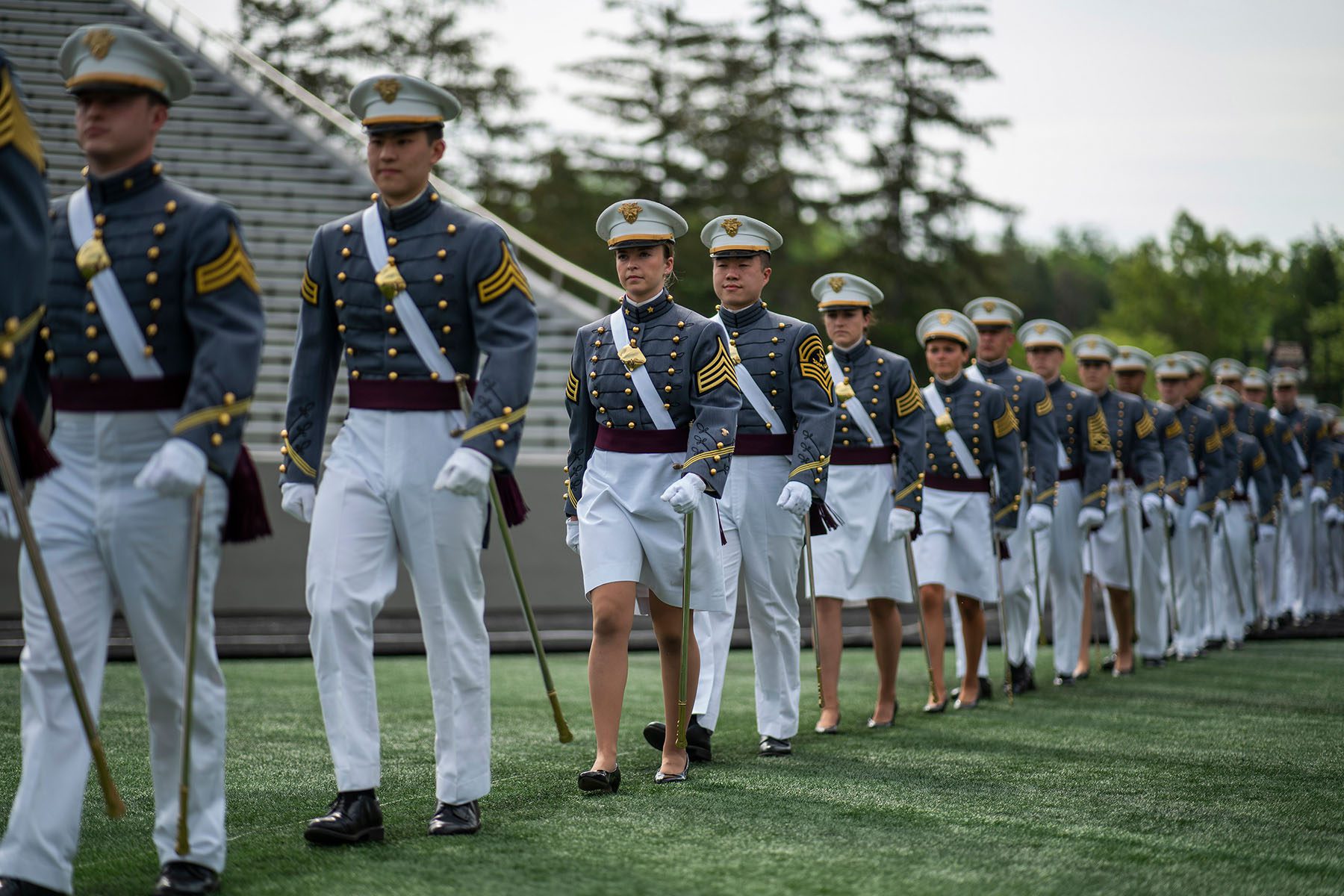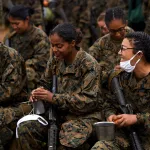Changes are coming for women in the military.
The Senate voted 89-10 to pass the National Defense Authorization Act (NDAA) — legislation that is passed each year to make changes to the country’s defense agencies, establish priorities and provide guidance on how military funding should be spent.
While that includes big-ticket items like acquiring planes, adjusting benefits and increasing cybersecurity efforts, lawmakers promoted three amendments and provisions related to women and the military in the $770 billion package. One with a direct effect on women service members is the Military Forces Assuring that Treatment of Items by Gender are Uniform and Equal across the Services Act (FATIGUES) Act of 2021, sponsored by Sen. Maggie Hassan of New Hampshire, was included in the final text of the NDAA.
The bill eliminates the “pink tax” on military uniforms and aims to address other financial gender inequities in the military. A recent report from the U.S. Government Accountability Office (GAO) found that women were disproportionately required to pay more out-of-pocket costs as a result of service-wide uniform changes.
For instance, the report found that a woman in the Army for two decades likely paid more than $8,000 out-of-pocket for uniforms, while a man with the same experience paid around $3,500. Several women’s uniform items, including dress pumps, hand bags and swimsuits, were excluded from a list of items that the military would replace for all enlisted members.
“Our military represent our country’s values, and it is absurd that in 2021, women are still paying more than men for their uniform while they bravely serve our country,” Hassan said. “This is a pink tax, plain and simple, and one that has no place in our military – or anywhere in American society.”
With the passage of the 2021 NDAA, defense and military officials will be required to create consistent criteria across the services for determining which uniform items are considered “uniquely military.” This standardization will help calculate clothing replacement allowances and “reduce differences in out-of-pocket costs incurred by enlisted members of the Armed Forces across the military services and by gender within a military service,” according to the legislation text. The Secretary of Defense is also ordered to periodically review calculations and identify significant cost differences between services and genders.
The NDAA passed without one contentious amendment: the inclusion of women in the military draft. Keeping with the status quo, women will not be required to register with the Selective Service System when they turn 18. As the law currently stands, every “male citizen” and immigrant — regardless of legal status — between the ages of 18 and 26 must register.
Rep. Chrissy Houlahan of Pennsylvania, a Democrat and former U.S. Air Force officer, introduced an amendment this year to the NDAA that would have required women for the first time to register with the agency responsible for running a draft.
-
More from The 19th
- Women in the military pay more to keep their uniforms up to date. Two senators aim to change that.
- Could women qualify for the draft someday? Here’s what you need to know.
- ‘I wish more Americans could see’: How two women senators secured bipartisan support for a military sexual assault bill
The House passed the NDAA on December 7 without Houlahan’s amendment. Despite robust bipartisan support, it was stripped from the bill during the final days of closed-door negotiations.
Conservative opponents to the change argued that America’s “daughters, sisters and wives” should not be compelled to fight in wars. Other proponents included progressive, feminist and anti-war organizations that called for an end to the Selective Service Act altogether.
A challenge to the draft in the 1980s had resulted in a Supreme Court ruling that women could constitutionally be excluded from conscription because they were also banned from combat roles. However, the ban on women serving in combat roles was lifted in 2013.
The military has not issued a draft since 1973 and is highly unlikely to do so in the foreseeable future. The United States has had an all-volunteer military for nearly five decades and recently concluded its longest-fought war without reinstating a draft. Contrary to public perception, the majority of military roles are not combative. Instead, most service members fill supporting roles, including those in intelligence, cybersecurity, engineering, health care and science.
The increased number of women in the military has also led to new demands on its justice system. Attempts to enact changes, especially around sexual assault cases, were met with limited success.
The Military Justice Improvement and Increasing Prevention Act, sponsored by Sens. Kirsten Gillibrand of New York and Joni Ernst of Iowa, survived in a weakened form: The physical security on military bases will be improved and survivors will now be allowed to call a safe helpline to report serious crimes instead of appearing in person.
However, one of the most significant provisions was stripped from the final bill despite a bipartisan majority support in both the House and the Senate. In what Gillibrand called a “total denial of justice,” the prosecution of sexual assault and other serious crimes will remain in the chain of command instead of under the purview of independent military prosecutors. The commander will remain central to the prosecution — granted the authority to pick the jury, select the witnesses, grant or deny witness immunity requests, order depositions and improve the hiring of expert consultants.
Gillibrand, who first introduced her military justice reform bill in 2013, said she would continue to pursue a standalone floor vote for the original proposal. Majority Leader Chuck Schumer and House Speaker Nancy Pelosi, both Democrats, have voiced support.







